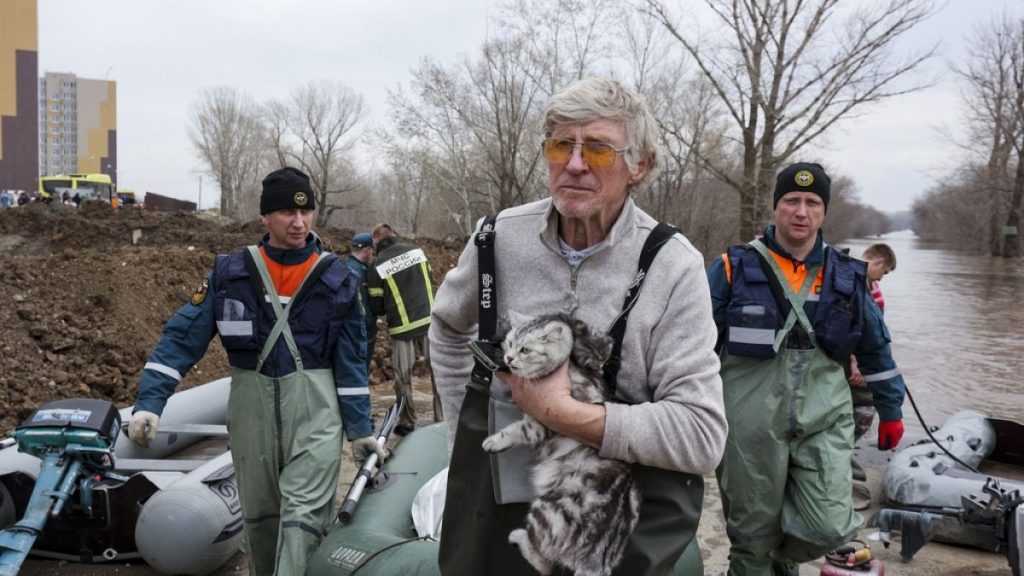More than 100,000 people have been forced to flee their homes in Russia and Kazakhstan due to fast-melting snow and ice causing rivers in the region to swell. Kremlin spokesperson Dmitry Peskov described the situation as “very, very tense” as both countries have declared a state of emergency after battling rising rivers for over five days. Kazakhstan has evacuated 96,272 people while Russia has evacuated over 7,000, primarily from the Orenburg region. The floods in Orenburg began with the collapse of a dam on Saturday, with water levels rising above 10 meters in the city of Orenburg and causing widespread damage to homes and infrastructure.
Russian President Vladimir Putin has not yet visited the flood-hit region, despite being frequently seen on state television engaging with officials and traveling across the country. The situation in Orenburg continues to worsen, with photos showing submerged roads, fields, and partially submerged houses. More than 300 homes were flooded overnight, and the water was approaching high-rise buildings in the city, prompting concerns about the safety and well-being of residents. In the city of Orsk, citizens gathered in a rare protest calling for compensation for the damage to their homes, with some accusing authorities of not doing enough to address the situation.
Videos shared on social media showed Russians expressing anger and frustration over the lack of assistance and the presence of looters in areas near their homes. Reports indicate that thieves were taking advantage of the flooding to loot abandoned houses using boats, adding to the challenges faced by residents in the affected areas. A criminal investigation has been launched to probe potential construction violations that may have contributed to the dam collapse, with local authorities acknowledging that the dam should have been able to withstand water levels up to 5.5 meters. However, the water levels in Orsk reached 9.7 meters on Sunday, surpassing the capacity of the dam and leading to widespread flooding and destruction in the region.
The Ural River, spanning over 2,400 kilometers from the Ural Mountains to the Caspian Sea, flows through both Russia and Kazakhstan and has been a major cause of concern during the recent floods. The situation remains critical in both countries as efforts to control the rising waters and provide relief to affected residents continue. The scale of the displacement and devastation caused by the flooding underscores the urgent need for immediate assistance and support from authorities and humanitarian organizations. The challenges faced by those impacted by the floods, including damaged homes, infrastructure, and livelihoods, highlight the need for comprehensive and coordinated efforts to address the humanitarian crisis unfolding in the region. As the situation continues to evolve, it is crucial that resources are mobilized to assist those in need and prevent further loss of life and property in the affected areas.


